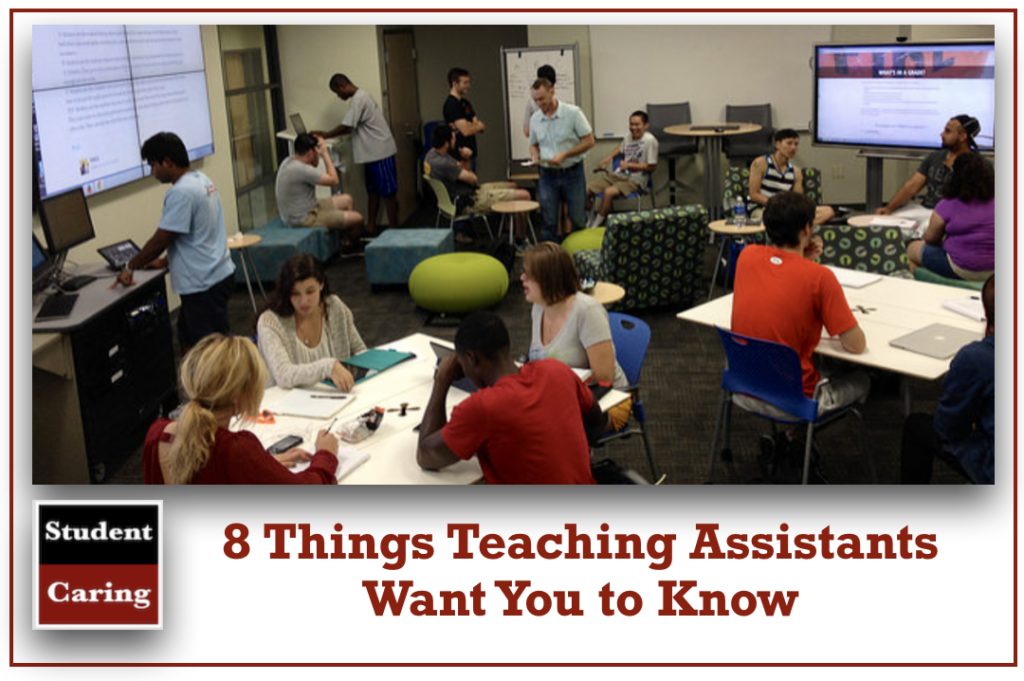
Teaching Assistants play a key role in most undergraduate students’ higher education experiences. More common in large state universities, yet still present in liberal arts colleges, teaching assistants are graduate students who either lead courses or supplement a professor’s lectures with smaller sections.
A graduate-student led project held discussions with over 80 graduate students across three universities and had them share what they wished students knew about working with teaching assistants. The findings can be summed up in the following eight points:
- Don’t have parents be your go-between. This is a point that most professors agree with. College is a time to develop independence, additionally, student privacy laws mean TAs cannot talk to parents about student grades or work.
- We have more control over student grades than you may think… Very few professors grade when they have TAs. They usually only become involved if there is a prolonged grade dispute. Because TAs have more interaction with students in large seminars, they also have a better idea of what materials students are grasping or struggling with.
- …but very little control in other areas. While we have a good grasp of learning trends in sections, we do not always have the leeway to structure section accordingly. TAs reported not being able to hold review sections when they knew they would have been appreciated. While TAs have freedom to structure sections in certain ways, instructors do have preferences that trump the structure.
- We want you to come to office hours. This is another similarity between TAs and professors. Office hours are where we can clarify material, dive deeper into topics that interest you, and get to know you more as a person.
- There’s a lot we can do beyond the course. We can write letters of recommendation, put in good words for getting into classes, offer advice on programs or courses
- We face inequalities as instructors. TAs experience racial and gender dynamics in the classroom. Female TAs recalled experiences where male students would repeatedly seek grade appeals. TAs of color are assumed to be specialists in certain topics (diversity, minority rights, etc). TAs for whom English is not their first language express struggles with having students question their credibility because of their language skills or accent.
- We (kind of) have lives. As graduate TAs are working on their theses and dissertations, we have boundaries. We are happy to work with students and be accommodating… within reason. If you have a problem, or something developing in your personal life that may impact your performance in the course, let us know as soon as possible. The earlier we talk, the more possible it is to find a solution or talk about options.
- We do know a lot about what we are teaching. That’s why we are teaching on days the professor isn’t. Not only do we know about the topics, we are passionate about them. That’s why we are in graduate school. If we are able to pass on that knowledge or passion to students, that makes the entire teaching experience worthwhile.
Author Byline
Ellen Ahlness is a graduate student instructor at the University of Washington. She has experience working with a wide range of students, including ESL and international classrooms. Her blog contains links to her work and writings on her teaching philosophy.

0 Comments